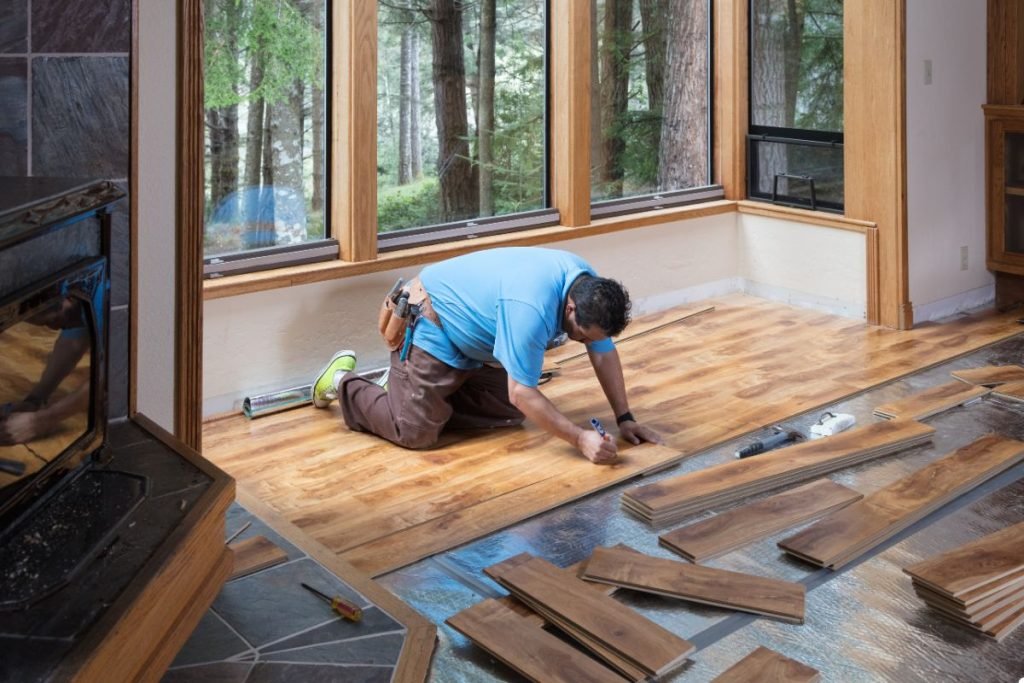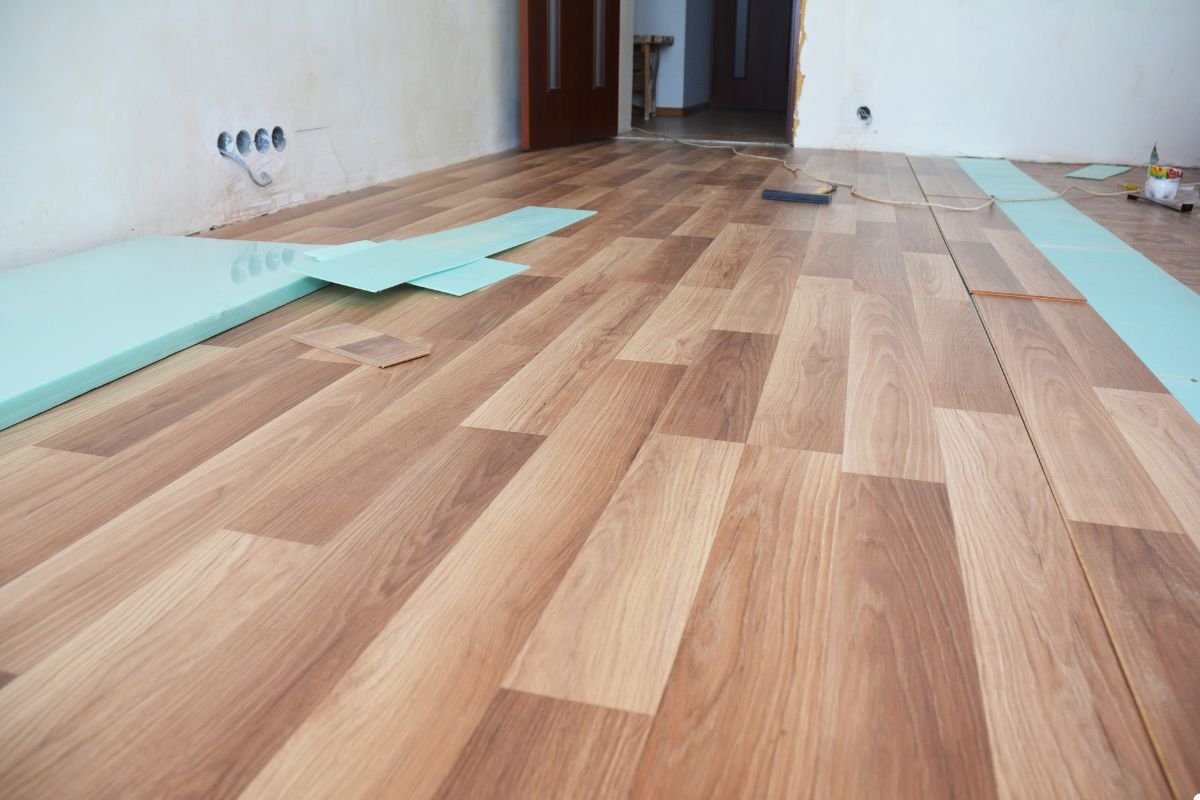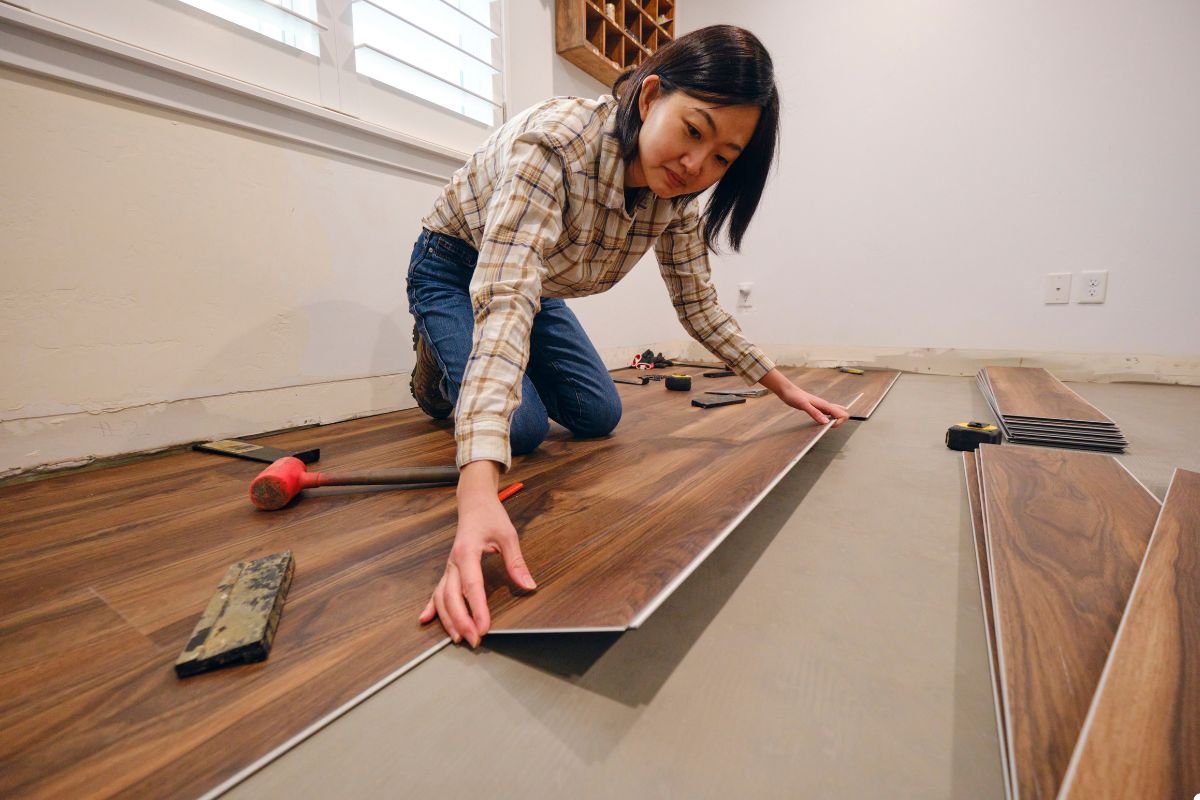
Thinking about new floors? One of the first questions that pops up is: Can I save money by buying the flooring materials myself? The short answer is: it can be cheaper, but only under the right circumstances and with a full understanding of all potential costs and risks. Otherwise, the perceived savings can quickly vanish, leaving you with a frustrating DIY disaster and a bigger bill than if you’d hired a professional from the start. In this comprehensive guide, we’ll break down all the factors involved to help you make the best decision for your home and budget. Have questions? Call us today to speak with an expert!
-
The Perceived Savings of DIY Flooring Purchase
Let’s face it: the allure of DIY is strong. Cutting out the “middleman” – the flooring contractor – and buying materials at what appears to be a lower cost feels like a guaranteed victory for your wallet. You might find “wholesale” deals online or discounts at big-box stores, picturing significant savings compared to a contractor’s quote. Many homeowners mistakenly assume that a contractor’s pricing is simply marked up product and high labor cost. Choosing the right tile flooring involves more than just aesthetics; factors like durability, slip resistance, and maintenance matter. While labor and markup are included, it doesn’t mean that purchasing materials yourself will automatically translate to savings. In fact, many DIYers realize that they may actually save little, if anything, by handling material purchases themselves.

-
Cost Breakdown: The Contractor’s Role
Before jumping on the DIY bandwagon, understand where those contractor costs actually come from. Breaking it down reveals the potential pitfalls of going it alone:
- 2.1. Material Costs: Contractors often have established relationships with suppliers, allowing them to negotiate better prices and access to materials that might not be readily available to the general public. They may also be able to purchase in bulk, securing discounts that individual homeowners can’t.
- 2.2. Labor Costs: This covers the installer’s expertise, time, and physical effort. A professional installation master has the tools, experience, and techniques to get the job done quickly and efficiently.
- 2.3. Overhead and Profit: This accounts for the contractor’s business expenses (insurance, licenses, vehicle costs, marketing, etc.) and a reasonable profit margin. This is what keeps them in business, allowing them to provide their services and guarantees.
-
Hidden Costs of Buying Flooring Yourself
This is where the DIY savings can quickly unravel. Don’t just focus on the sticker price of the flooring itself. Factor in these often-overlooked expenses:
- 3.1. Measurement Mistakes: Ordering too little flooring is a common and costly error. Underestimating can lead to delays, dye lot mismatches, and the hassle of re-ordering.
- 3.2. Material Waste: DIYers often generate significantly more waste than professionals due to inexperience in cutting and fitting materials.
- 3.3. Tool Rentals/Purchases: Unless you already own them, you’ll need to rent or buy specialized tools like flooring cutters, tapping blocks, spacers, and more.
- 3.4. Delivery and Handling: Getting heavy different types of flooring materials from the store to your home can be a logistical challenge, requiring a truck rental or paying for delivery.
- 3.5. Warranty Issues: Many flooring manufacturers void warranties if the flooring is not professionally installed. If something goes wrong, you’re on your own.
-
Material Considerations & Expertise
Choosing the right flooring isn’t as simple as picking a color you like. Factors like foot traffic, moisture levels, and subfloor conditions all play a crucial role.
- 4.1. Choosing the Right Flooring: What works in a dry living room might be disastrous in a damp basement or a busy kitchen. Understanding the properties of different materials is key.
- 4.2. Assessing Subfloor Conditions: A properly prepared subfloor is essential for a successful flooring installation. Professionals can identify and address issues like unevenness, moisture problems, or damage.
- 4.3. Understanding Material Grades: Flooring comes in various grades, affecting its durability and appearance. A professional can guide you toward the appropriate grade for your needs and budget.
-
The Value of Professional Installation
Professional flooring installers bring more to the table than just muscle power.
- 5.1. Proper Installation Techniques: They possess the knowledge and skills to install flooring correctly, ensuring a long-lasting and visually appealing result.
- 5.2. Time Savings and Convenience: Installation can be a time-consuming and physically demanding process. Hiring a professional frees up your time for other tasks.
- 5.3. Warranty and Guarantees: Most professional installers offer warranties on their workmanship. If any issues arise after installation, they’ll fix them at no extra cost.

-
DIY Flooring: When It Makes Sense (and When It Doesn’t)
There are times when DIY flooring is a reasonable option:
- Small Projects: A small bathroom or closet might be a manageable DIY project.
- Simple Installations: Click-lock vinyl plank flooring is generally easier to install than hardwood or tile.
- Experience and Skills: If you have prior experience with similar projects and possess the necessary skills and tools, DIY might be a good fit.
However, avoid DIY in these situations:
- Large Areas: Installing flooring in an entire house is a massive undertaking best left to professionals. Choosing waterproof flooring adds value to your home while enhancing its appearance.
- Complex Layouts: Rooms with intricate patterns or difficult angles require specialized skills.
- Challenging Subfloors: Addressing subfloor issues requires expertise and specialized equipment.
- Valuable Materials: Hardwood, tile, and other premium materials are best installed by professionals to avoid costly mistakes.
-
Getting Quotes and Comparing Options
If you’re considering professional installation, get quotes from multiple contractors.
- Be Specific: Provide detailed information about your project, including the type of flooring you want, the area to be covered, and any existing flooring that needs to be removed. Get expert flooring solutions tailored to your needs! Contact us today for a free consultation and estimate.
- Compare Apples to Apples: Make sure the quotes include the same materials and services.
- Read Reviews: Check online reviews and ask for references to assess the contractor’s reputation and quality of work.
-
Conclusion: Weighing the Risks and Rewards
Ultimately, the decision of whether to buy flooring yourself or hire a professional depends on your individual circumstances. While the DIY route can sometimes save money, it also carries significant risks. Carefully consider your skills, time, budget, and tolerance for potential problems before making a choice. Don’t let the promise of savings blind you to the true cost of a poorly executed flooring project. Have questions? Call us today to speak with an expert!

